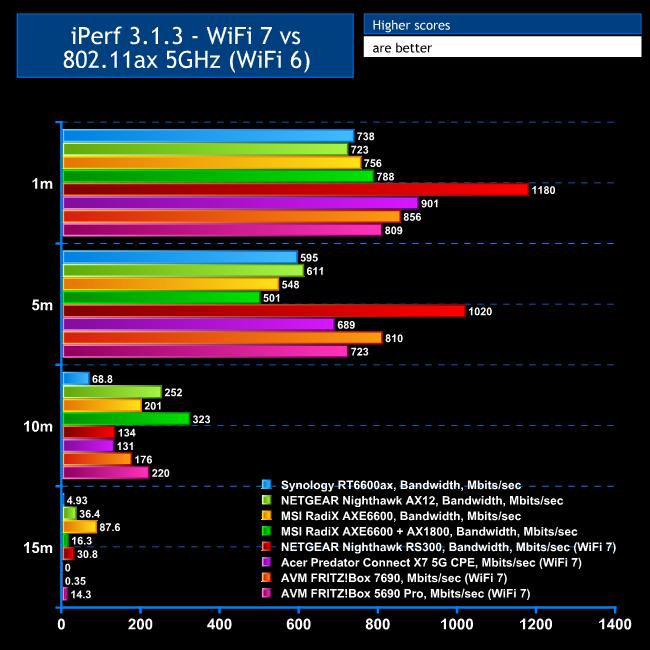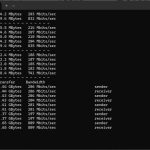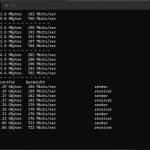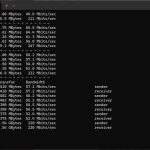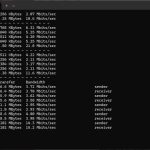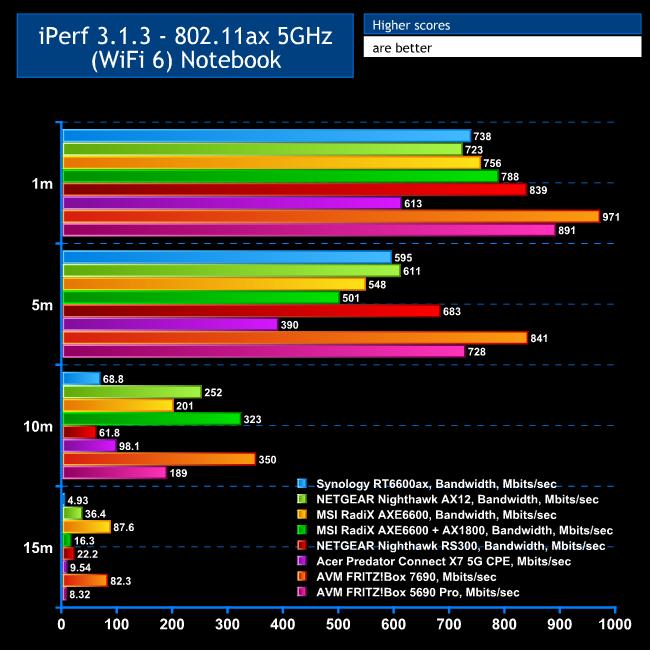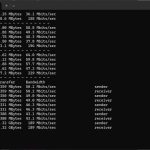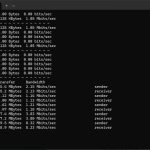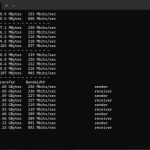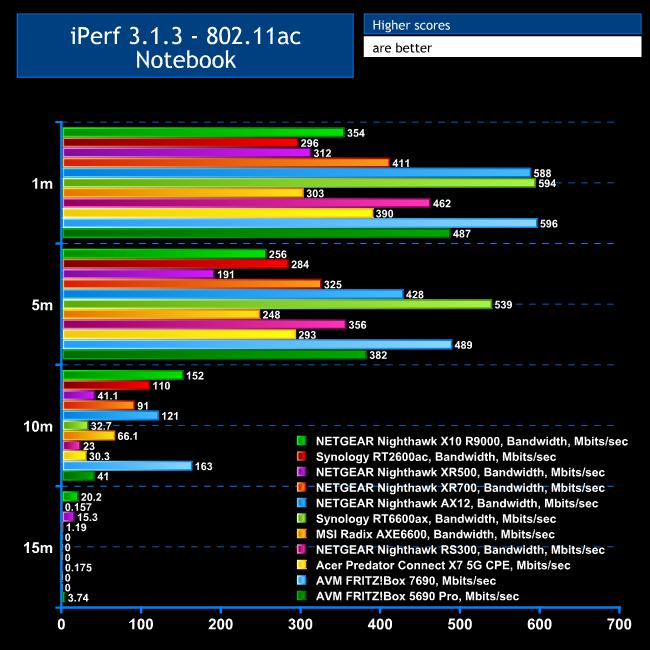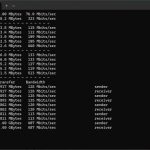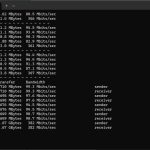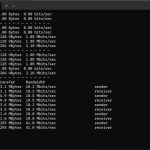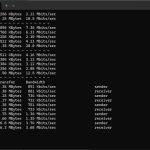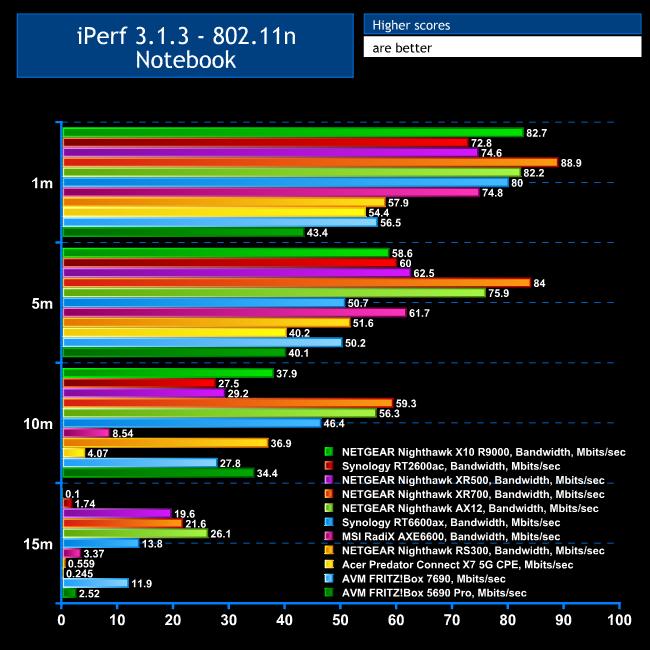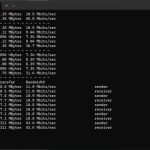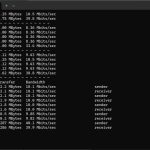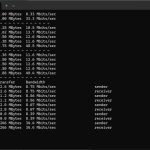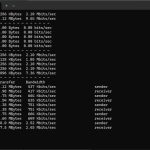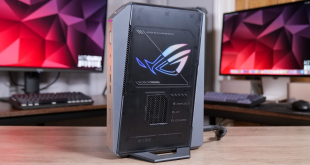We tested the raw throughput of the AVM FRITZ!Box 5690 Pro across the four different WiFi standards it supports – 802.11be, 802.11ax, 802.11ac and 802.11n.
We used the open-source iPerf 3.1.3 software for testing, which can simulate multiple clients streaming at once. Five Windows systems were employed. Our desktop base was an Armari 32-core AMD Ryzen Threadripper workstation running Windows 11. For WiFi 7 testing, we used an Acer Swift 14 AI notebook, then a Dell XPS 17 notebook (for WiFi 6), a fourth was an MSI WS63-7RK (802.11ac) notebook, and finally an HP Folio 3 notebook (802.11n only – to show performance with legacy devices). The Acer and Dell notebooks and Armari workstation were running Windows 11 but the other two notebooks were Windows 10-powered.
For all tests, the notebooks were tested using their various WiFi connections (802.11be / WiFi 7 for the Acer, 802.11ax for the Dell, 802.11ac for the MSI, 802.11n for the HP). The notebooks were then placed in four different locations – within 1m of the router, approximately 5m away with a wall in between, 10m away and on a lower floor (with multiple walls and a floor in between), and then 15m away on the same lower floor. We tested all four distances with the four WiFi standards.
With each WiFi standard and distance, we took 60 readings of throughput at one second intervals and calculated the average (iPerf does this automatically). We tested the FRITZ!Box against the MSI Radix AXE6600, NETGEAR Nighthawk X10 R9000, Synology RT2600ac, NETGEAR Nighthawk XR500, NETGEAR Nighthawk XR700, Synology RT6600ax, NETGEAR Nighthawk AX12, NETGEAR Nighthawk RS300, Acer Predator Connect X7 5G CPE, and AVM FRITZ!Box 7690.
802.11be (WiFi 7)
In theory, the bandwidth of WiFi 7 can exceed that of wired Gigabit Ethernet, and as the LAN switch on the 5690 Pro is Gigabit only, it could be being held back by this.
Before analysing the results, we should also point out that an initial WiFi 7 test produced surprisingly poor results, because the much-vaunted 6GHz radio didn't appear to be on. After much retesting and Internet searching, on a hunch we checked the regional settings, which hadn't been configured despite being one of the first things in the setup wizard. Setting this to the UK finally fixed the problem.
We had seen just 512Mbits/sec at 1m, with just the 5GHz waveband being used. But once 6GHz was active this leapt to 809Mbits/sec, well above WiFi 6 but behind AVM Fritz!Box 7690 and Acer Predator Connect X7 5G CPE. It's also a lot behind NETGEAR's Nighthawk RS300.
However, things improved at 5m. The FRITZ!Box 5690 Pro's 723Mbits/sec is ahead of the Acer Predator X7 5G CSE, but still behind the 7690 and the NETGEAR Nighthawk RS300 is cruising way out in front.
At 10m, the 5690 Pro does extremely well with 220Mbits/sec, which is ahead of all other WiFi 7 routers we've tested so far, although some WiFi 6 alternatives do better at this range, notably the MSI RadiX AXE6600 and NETGEAR Nighthawk AX12.
At 15m, the 5690 Pro's signal drops to a reasonable 14.3Mbits/sec, again beating the 7690 but with NETGEAR WiFi 6 and 7 routers ahead and the MSI Radix AXE6600 cruising.
Overall, these aren't the earth-shattering WiFi 7 results we had hoped for but they're still very good, showing usable coverage up to 15m and Gigabit Ethernet-like speed at up to 5m.
802.11ax 5GHz (WiFi 6)
Considering how few and far between WiFi 7 clients still are, most of your devices will be using WiFi 6, so good performance here is essential.
The FRITZ!Box 5690 Pro is unfortunately not as rapid with WiFi 6 as its 7690 stablemate, but it is still fast.
At 1m, the throughput is an excellent 891Mbits/sec – faster than it was with WiFi 7 and faster than any WiFi 6 router we've tested before.
The performance is equally incredible at 5m, hitting 728Mbits/sec and way ahead of all competitors, bar the 7690.
The 10m result is still decent at 189Mbits/sec, although a number of WiFi 6 routers and the 7690 are ahead.
At 15m the 5690 Pro manages a just about usable 8.32Mbits/sec, but most other competitors are ahead.
Overall, while the range isn't as good as the 7690, the 5690 Pro is an excellent WiFi 6 router below 10m.
802.11ac 5GHz (WiFi 5)
The solid WiFi 6 performance gives way to mediocre abilities with WiFi 5.
At 1m, the throughput of 487Mbits/sec is very good but behind several other routers we've tested, including AVM's own Fritz!Box 7690.
It's similarly in fourth place at 5m, with 382Mbits/sec bandwidth.
At 10m, however, the 5690 Pro drops back to 41Mbits/sec, and at 15m the 3.7Mbits/sec result is borderline unusable.
Again, this is a decent router at up to and including 5m, but not great at 10m and beyond.
802.11n 2.4GHz – Legacy
Although 802.11n clients are getting few and far between – the one we use for testing is over ten years old now – you might still have something that operates with this standard, such as an Internet-of-Things device.
Even at 1m, the 5690 Pro's 43.4Mbits/sec is very slow.
It does manage to maintain 40.1Mbits/sec at 5m and then a more competitive 34.4Mbits/sec at 10m.
The performance of 2.52Mbits/sec at 15m is even less barely usable as this router's performance with WiFi 5.
Overall, while the AVM FRITZ!Box 5690 Pro isn't the leading WiFi 7 router we've tested, and falls behind its 7690 sibling, you are clearly getting some benefit from the 6GHz signal. The WiFi 6 and 5 results are solid if you're not too far away as well. The 802.11n performance is below par, but you probably won't use that very often anyway.
 KitGuru KitGuru.net – Tech News | Hardware News | Hardware Reviews | IOS | Mobile | Gaming | Graphics Cards
KitGuru KitGuru.net – Tech News | Hardware News | Hardware Reviews | IOS | Mobile | Gaming | Graphics Cards


